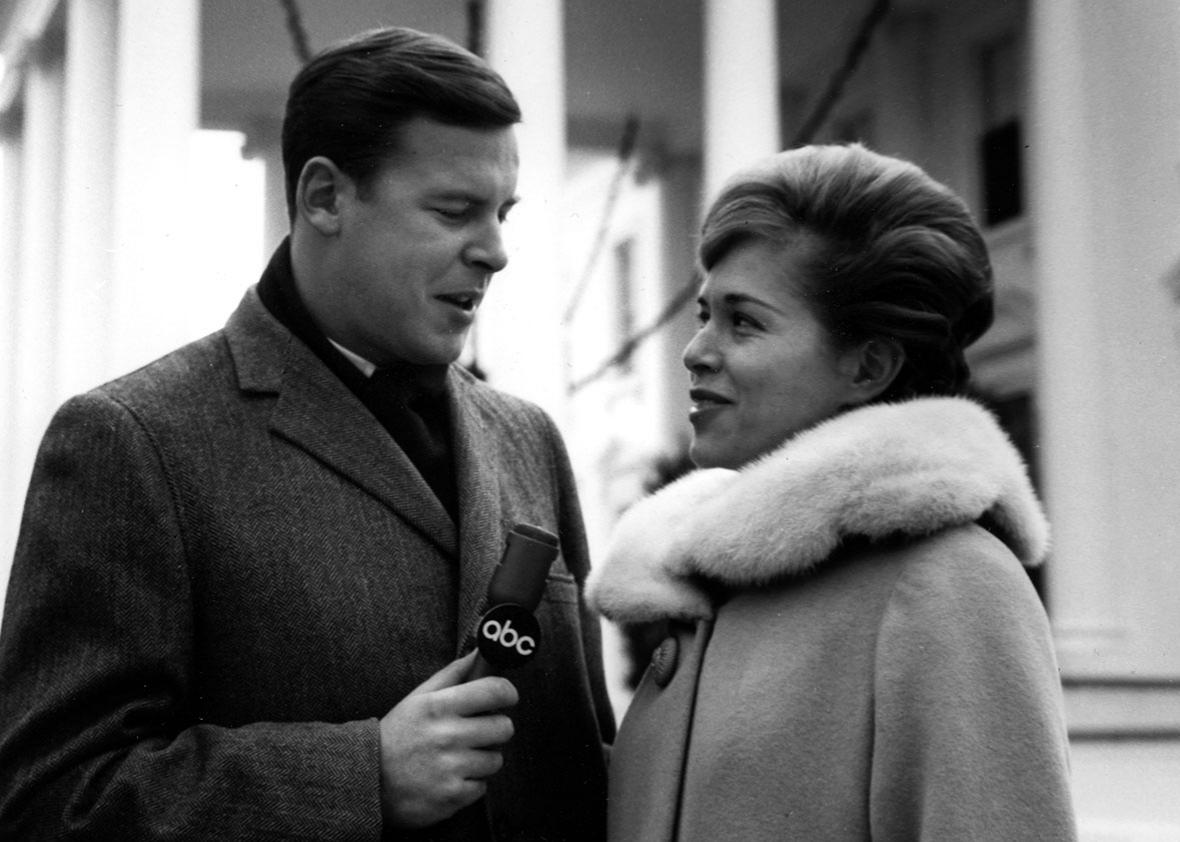Pioneering television journalist Marlene Sanders passed away on Tuesday at the age of 84. Her prolific, decades-long career comes with a litany of “firsts”: she was the first female television correspondent in Vietnam, the first female anchor on a U.S. network television evening newscast, and the first female vice president of ABC News.
These successes weren’t without struggle. As a woman breaking into news in the 1960s, Sanders found an industry not entirely welcoming to her. Female journalists were pigeonholed, expected to cover a limited range of topics, such as style, society, entertainment, food, and family. She was told a woman couldn’t anchor a news program because “a woman’s voice is not authoritative.” ABC gave her an afternoon show with the cringe-worthy title of “News With the Woman’s Touch.”
Bill Moyers, her colleague at CBS, told the Los Angeles Times that Sanders “caused the first tinkling of the glass ceiling.” Among her many achievements, one of Sanders’ most important legacies is her reporting on the women’s liberation movement. At the time, male journalists covering the burgeoning movement were often dismissive. Sanders described their tone: “Women’s lib was treated with humor at best and contempt at worst.”
Sanders understood the movement’s potential and importance, and the need to cover it with respect. Determined to make the subject a central focus in mainstream media, she reported and produced “Women’s Liberation” for ABC News in 1970, the first of her seven documentaries on the topic.
She wrote of her accomplishments: “As I look back on my career, the women’s movement provided an exceptional point when time, place and position all came together to give me the power and focus to contribute to the country’s awareness of the status of women.”
During her career, Sanders produced award-winning documentaries on topics including the right to die, women’s health, and religion. After leaving CBS in the late 1980s, she continued her work at WNET in New York and taught journalism at New York University. (Among her survivors is her son, Jeffrey Toobin, the New Yorker writer and CNN commentator.)
While Sanders made inroads in the industry, she knew there was more work to be done: “Until women are in top management positions in large numbers, we will never have our fair share of the jobs. That may take years to happen. How long probably will depend on the progress women make in our society as a whole. Until many more women occupy positions of authority in industry and government, it is unlikely that women will be seen as authoritative and fully competent in this business of broadcast news.”
